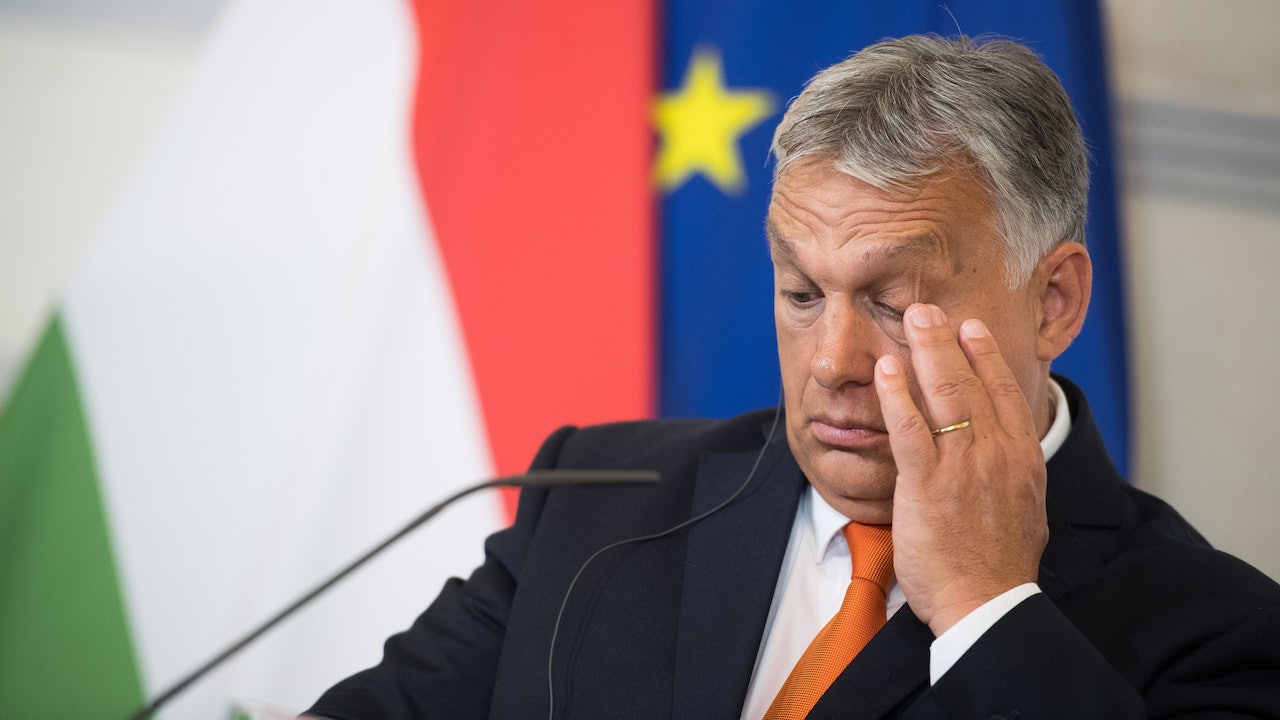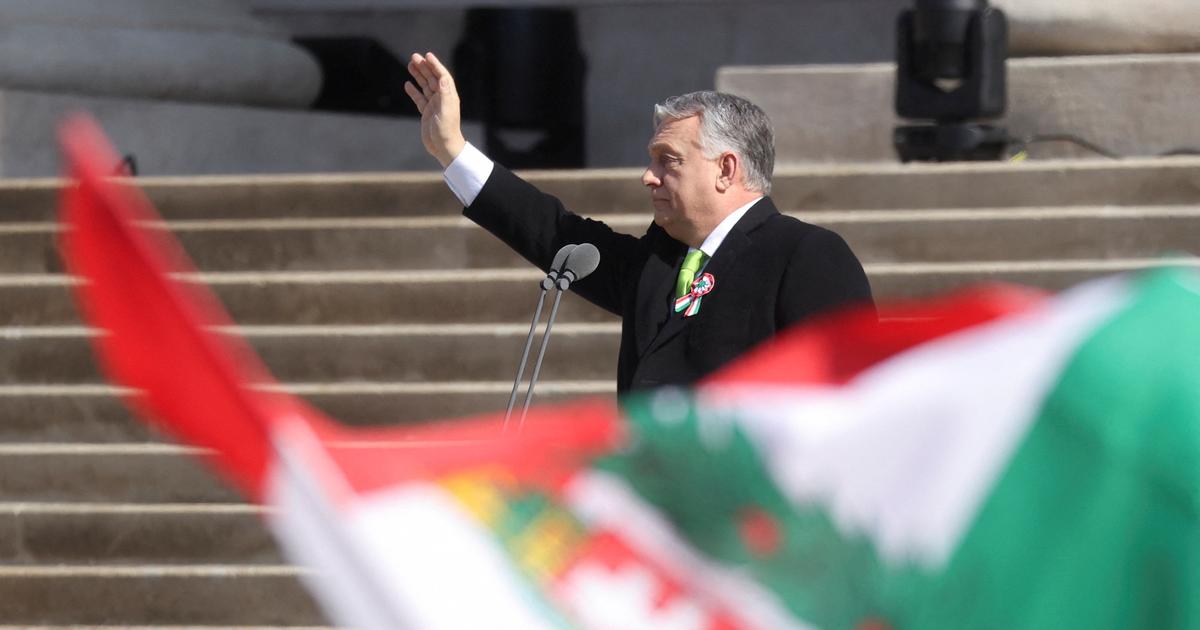The last EU summit of this year was held on the 14th and 15th. A series of difficult issues such as EU natural gas pricing, the implementation of the world’s lowest corporate tax, the ninth round of sanctions against Russia, and the response to US climate policy protectionism are all on the agenda. More will almost have to be resolved before Christmas.
The summit is so important that even President Emmanuel Macron, who went to Qatar to cheer for France in the World Cup semi-finals, also decided to fly back to Brussels after the game in order to personally settle the differences between the parties.
Perhaps, the reason for Macron's decision not to directly cancel his trip to Qatar was the compromise made by Hungarian Prime Minister Viktor Orban before the summit, giving up his veto power on the EU's 18 billion euro aid to Ukraine in the coming year, and at the same time Support the implementation of a minimum effective corporate tax rate of 15%.
Another "sissy game"
Since Ukraine is expected to need nearly US$40 billion in aid from its allies in the coming year to maintain the government’s public services, the EU’s allocation of US$18 billion is a necessary condition for Ukraine to maintain its war against Russia in addition to arms assistance.
Orban, who has always been pro-Russian and has been good at using the EU's consensus decision-making system to seek his own interests over the years, tied the 18 billion aid to Ukraine with the two EU aid to Hungary.
Because of corruption and the rule of law in Hungary, the EU previously proposed to directly withhold the 5.8 billion euros in aid that Hungary received from the post-epidemic recovery fund and the 7.5 billion euros in solidarity fund aid, requiring Hungary to implement the 17 anti-corruption measures of the European Commission. Corrupt rule of law reform.
Orbán used Hungary's veto power in the consensus system as a bargaining chip to hinder the EU's decision-making, and once again played the "chicken's game" with the major EU countries to see who would make concessions before the disaster.
Orbán's anti-LGBTQ rights and emphasis on racial purity have won the favor of the American Conservative Party, making him a star figure at the Conservative Political Action Conference (CPAC).
(Getty Images)
Although countries are tired of Orbán's "repetition of the old tricks" - some leaders of other countries have allegedly told him in his face that he didn't like it and applied for Brexit - but the system is such that in the end everyone has to compromise .
Finally, on December 12, the countries decided to release Hungary's 5.8 billion euro recovery fund, and at the same time reduce the 7.5 billion withheld from the solidarity fund to 6.3 billion in exchange for Orbán's release of the EU's 18 billion euro aid to Ukraine.
This is of course another Orbán haggling, just as he had earlier won an exemption to Hungary for pipeline oil over the EU's decision to impose an oil embargo on Russia.
The current economic crisis has to bow its head
However, objectively speaking, Orbán's "gains" this time are mostly face-saving elements, with little actual gain.
Although the EU withheld some solidarity fund allocations, the 5.8 billion recovery fund it "released" actually included the European Commission's request for legal reforms in Hungary. If Orbán refuses to obey in the future, this sum of money will actually will still be seized.
This time, Orbán's "faint" compromise is largely due to the fact that Hungary really needs the EU's rescue urgently.
First, as much as 70% of the EU's 5.8 billion could be permanently lost if the EU does not pass the recovery fund by the end of the year.
At present, the inflation rate in Hungary is as high as 22.5%, far exceeding the 10.0% in the euro zone. The Hungarian Forint has depreciated by nearly 15% against the euro since February this year. The Orbán government, which relied on the Minsheng brand to win the election, has had to impose price limits on various food and fuel to complain to the people.
However, the Hungarian government had a deficit of 6.8% last year, and government debt was as high as 76.8% of GDP. Earlier this month, it had to cancel the 13-month price cap on gasoline and diesel due to supply shortages.
Its central bank governor even said that amid high inflation, all price controls should be phased out immediately.
Forced by the situation, Orban, who started out relying on populist politics, of course had to bow to the EU's "money power".
Orbán has a friendly relationship with Putin, and has long been regarded as the "second-five boy" in the European Union after the Russo-Ukraine war.
(Getty Images)
In the dull Brussels political arena, Orbán's compromise also made history: for the first time, the EU withheld its financial assistance to member states on the grounds of rule of law.
This development trend is especially important for Europe where extreme political forces continue to multiply in many countries.
Under the trend of multi-polarization in the world, many weaker countries in the camps around the world have begun to adopt a "small country game" strategy similar to Hungary, using disobedience within the camps to create troubles, strive for their own interests, and even become independent The power of foreign decision-making, such as Turkey within NATO, is seeking interests by delaying Sweden and Finland from joining NATO; Kazakhs in Russia's backyard are also taking advantage of the Russia-Ukraine war to try to establish their own independent diplomatic status, and do not recognize Russia's claim of sovereignty over Ukraine. Recently, it also refused to join the "gas alliance" proposed by Russia.
As long as the trend of multi-polarization remains unchanged, this strategy will still have its market.
This time, Orbán's bow was "coincidentally" forced by the situation. The domestic economy is in a downturn, and the EU has not long ago gained the power to sanction member states on the grounds of the rule of law.
Looking ahead, Orbán will remain the "troublemaker" of the EU.
How to deal with Orban will also be a long-term problem for the leaders of major EU countries, just like how the United States will deal with Turkey and how Russia will deal with Kazakhstan.
Russo-Ukrainian War|Patriot missiles to send Kyiv Putin's winter offensive has broken an arm?
The United States and Europe offer price limit orders, can Rosneft break through with these three measures?
Competing in Africa: Why did Biden avoid mentioning "China" at the first US-Africa summit in eight years?
Russo-Ukraine War | Why can't the war stop in Bakhmut's senseless bloody battle?
Orbán: Hungary will approve Finland and Sweden to join NATO in 2023.








